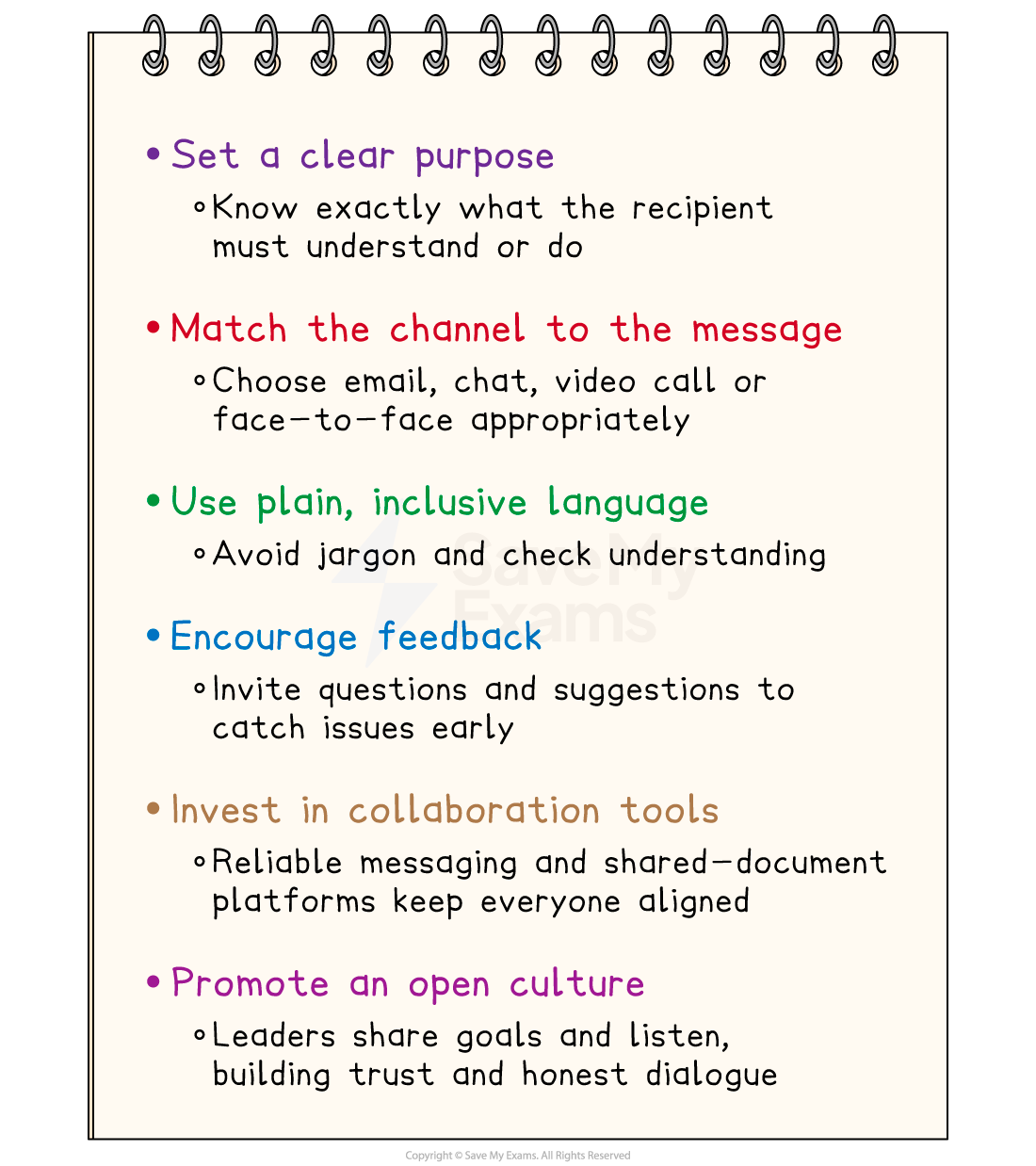The Role of Management in Facilitating Communication (Cambridge (CIE) A Level Business): Revision Note
Exam code: 9609
The role of informal communications
Informal communication is the casual, unofficial way that people in a business share information
It is not planned or written down in official records
The style is friendly and conversational, often using everyday language
Messages travel outside the formal chain of command, so they can move quickly across levels and departments
Informal communication can occur in a range of situations, including
Water-cooler chats
Quick conversations in the corridor, kitchen or staff room
Instant-messaging or group apps
Short texts or emoji exchanges on WhatsApp, WeChat, Slack, etc
Social gatherings
Talking during lunch breaks, team socials or company sports events
Benefits and risks of informal communication
Benefits | Risks |
|---|---|
|
|
|
|
|
|
|
|
Communication and business efficiency
Clear, timely and two-way communication is vital for an efficient business
It can can save time, cut costs or raise output when managed well
How communication affects business efficiency
Aspect | Impact on efficiency | Example |
|---|---|---|
Clarity and accuracy |
|
|
Speed of information flow |
|
|
Feedback channels |
|
|
Cross-department coordination |
|
|
Employee engagement |
|
|
Customer and supplier links |
|
|
Ways of improving communication
As communication is crucial to improving efficiency, managers should take steps to improve the way information moves around and outside of a business
Steps managers can take to improve communication

Sending a clear message through the most suitable channel, whether email, chat, video or face-to-face, reduces errors and speeds up decisions
This saves a business time and money
Encouraging two-way, inclusive dialogue by using plain language and inviting feedback brings problems to light early
It can also encourage new ideas and keep employees motivated.
Equipping teams with modern digital tools for chat, video calls and shared files keeps everyone coordinated, wherever they work
This improves customer service and helps achieve faster growth

Unlock more, it's free!
Was this revision note helpful?
